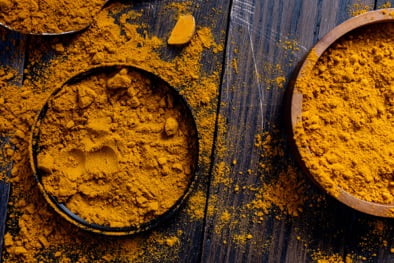Turmeric, scientifically known as Curcuma longa, is a bright yellow, aromatic spice derived from the root of a plant native to South Asia.

It belongs to the ginger family and has been used for thousands of years in traditional medicine and culinary traditions. Turmeric has a warm, slightly bitter taste and a peppery, earthy aroma. It’s a staple spice in many curry blends and South Asian dishes.

The vibrant yellow color of turmeric is due to the presence of a compound called curcumin. It is also used as a natural food coloring. Turmeric is a versatile spice used in a wide range of dishes, such as curries, soups, stews, and rice dishes. It adds both flavour and colour to food.

Some of the commonly reported benefits of turmeric: Anti-Inflammatory Properties: Curcumin is known for its strong anti-inflammatory effects. It may help reduce inflammation and alleviate symptoms of inflammatory conditions like arthritis.

Antioxidant Action: Curcumin has antioxidant properties, which can help protect cells from damage caused by free radicals. This may contribute to overall well-being. Digestive Health: Turmeric may aid in digestive health by stimulating bile production and supporting liver function. It’s also used to relieve symptoms of indigestion and bloating.

Heart Health: Some studies suggest that curcumin may improve the function of the endothelium, the lining of blood vessels. This could potentially contribute to heart health by regulating blood pressure and reducing the risk of heart disease. Brain Health: There is ongoing research into the potential cognitive benefits of curcumin. It may help in the prevention and management of neurodegenerative diseases like Alzheimer’s.

Immune Support: Turmeric may have immune-boosting properties. Its anti-inflammatory effects may help the immune system function optimally. Anti-Depressant Effects: There is emerging research into the potential antidepressant effects of curcumin. It may help manage symptoms of depression by influencing neurotransmitter levels.

It’s important to note that while these potential benefits are promising, more research is needed to establish the full extent of turmeric’s effects on health. Turmeric is safe when used in moderate culinary amounts, but if you’re considering turmeric supplements for medicinal purposes, it’s advisable to consult a healthcare professional, as interactions with medications and potential side effects may occur.
Stay Tuned for Our Next Post: Unlocking the Power of Turmeric Powder in Everyday Cooking and Beyond! 🌟🍛🌼
